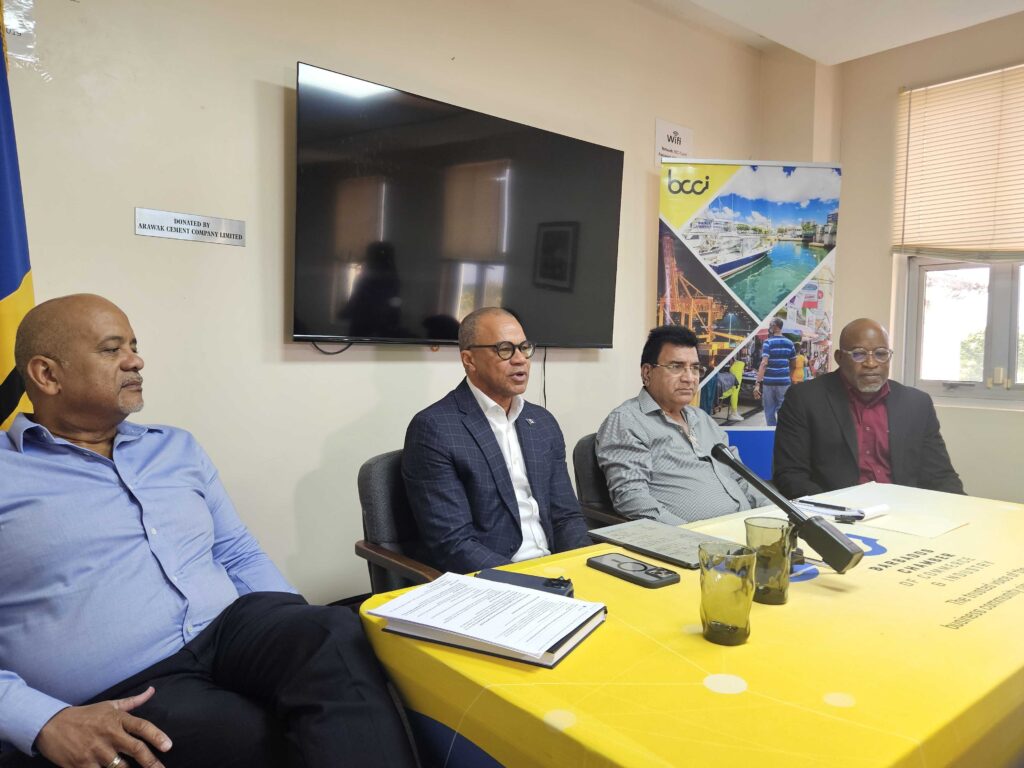A sweeping set of new national standards, designed to bolster public safety, consumer protection and the competitiveness of Barbadian products and services is set to be introduced soon, Barbados TODAY has learnt.
The measures—approved by the Barbados National Standards Institution—mark one of the boldest steps yet towards raising quality across the island’s businesses, homes and consumer markets.
BNSI Director Hadyn Rhynd said that the voluntary standards, which will make the country stronger, were recently approved and will soon be published in the Official Gazette.
“These standards represent a significant step forward in improving public safety, consumer protection, business competitiveness and sustainable development across our society,” Rhynd told Barbados TODAY.
One of the most crucial standards soon to enter the market addresses the construction of safer homes, he said.
Rhynd disclosed: “Among the most important is BNS CRCP 10:2023 – Construction of Houses – Code of Practice, which provides updated guidelines to ensure that Barbadian homes are built to withstand modern challenges, including climate-related risks. This is vital for safeguarding lives and protecting our national housing stock in a region vulnerable to hurricanes.”
Health and food security
Protecting health and food security is another high priority.
“Standards in the area of food and agriculture,” he added, “including BNS CRS 29:2011 – Poultry Feed, CRS 32:2018 – Pasta Products, and CRS 34:2018 – Cocoa and Chocolate Products, will help ensure that food products produced and consumed locally and exported abroad or imported meet recognised quality benchmarks. These measures reflect our commitment to safeguarding public health, particularly in the wake of global health challenges.
“Further, they do not only protect national consumers, but also enhance the credibility of Barbadian products in international markets.”
Everyday consumer goods are also covered in the new package of national standards.
New specifications for several items “directly impact households by guaranteeing that these commonly used products are not only safe, but effective and consistent in quality,” said the BNSI chief.
Sustainable tourism standards
“Tourism remains,” he points out, “the backbone of our economy, and the BNSI has adopted several standards under the Sustainable Tourism series. These cover energy efficiency, food safety, waste management, water treatment, and environmental stewardship, all essential to ensuring Barbados remains a competitive, sustainable and world-class destination. Standards in heritage hotels, accessible tourism, and medical tourism further strengthen our offerings to visitors while ensuring inclusivity.”
Environmental protection, climate action
“In keeping with Barbados’s global leadership in climate advocacy, we are publishing standards such as ISO 14024 and ISO 14021 (Environmental Labelling) and ISO 19694-1 (Greenhouse Gas Emissions in Industry). These support our national transition to a green economy by encouraging environmentally responsible business practices and improved climate reporting,” Rhynd said.
He continued: “Every one of these standards, whether it concerns the safety of a child’s biscuit, the reliability of a hand sanitiser, or the sustainability of our hotels, contributes to a stronger, safer and more resilient Barbados.
At BNSI, we believe that standards are not technical documents for specialists alone—they are tools for protecting consumers, supporting businesses and advancing national development. By adopting these international best practices, Barbados strengthens its ability to compete globally while ensuring the well-being of its people. The public is encouraged to access these new Barbados National Standards through the BNSI. Together, by raising our standards, we raise Barbados.”
Quality standards for small biz
The executive announced that BNSI is also offering certification to ISO 9001, the world’s leading standard for quality management. He assured that this certification is not only for large companies, but is a powerful tool for small businesses, which form the backbone of Barbados’s economy.
He explained that this particular certification helps businesses streamline operations, reduce waste and deliver consistent quality. “For small firms,” Rhynd added, “it builds credibility, opens new market opportunities, and gives customers confidence that products and services meet international benchmarks.”
The BNSI chief advised that for Barbados as a whole, wider certification means stronger consumer protection, more competitive exports and a culture of quality that supports national development.
He said: “Our certification programme is designed to make ISO 9001 accessible and practical, ensuring that local enterprises—no matter their size—can benefit. By embracing international best practices, Barbadian businesses can grow stronger, and our society can raise its standards together.”
Metrology law to be proclaimed
Rhynd revealed that the president is also set to proclaim the Metrology Act, creating a modern framework to regulate measurement across the island.
“Metrology—the science of measurement—affects us all,” he declared, “from the groceries we buy, to the fuel we pump, to the accuracy of medical equipment, fair and reliable measurement protects consumers, ensures honest trade and safeguards public health. The Act will give Barbados the legal tools to verify and enforce standards, bringing us in line with international best practices. For businesses, it builds trust and competitiveness; for consumers, it guarantees confidence that value matches cost.”
Rhynd contended that by strengthening the island’s measurement system, the Metrology Act supports consumer protection, fair trade and global market access—a win for every Barbadian, he added.
emmanueljoseph@barbadostoday.bb
The post New guidelines to boost safety, protection, and competitiveness appeared first on Barbados Today.


